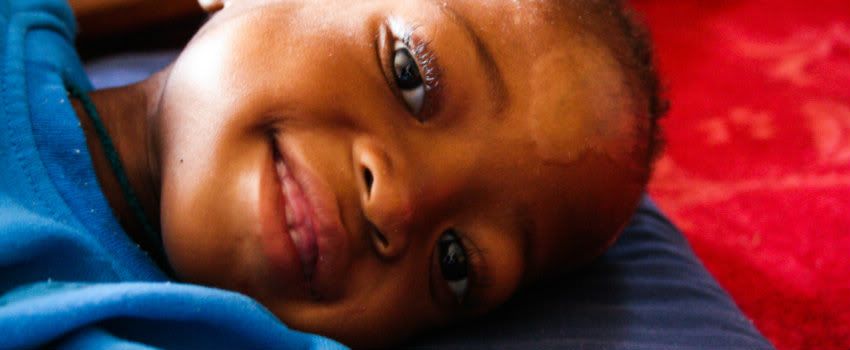Driving in Lesotho is a bit of an adventure. The roads are
tortuous, often narrow, deeply rutted, and bulging with rock. The rainy season
adds yet another nerve-wracking dimension – mud. Approaching a boggy section of
road results in a bit of panic; mud is unpredictable and unforgiving.
However, with families awaiting our arrival, the only choice is to persevere.
Sometimes the crossing is successfully navigated and other times the mud,
mountains, and gravity conspire to mire the vehicle. Unfortunately, the latter
was my experience some days ago.
| a bit of a predicament |
While traveling to the homes of Outreach clients, we
encountered a particularly muddy and flooded section of road. We slowly
approached the quagmire. I glanced at the staff, “This looks interesting.” I
uttered, and proceeded with the utmost caution. The mud pushed our sturdy truck
as if it were a matchbox toy. We found ourselves sliding down, skating off the
road onto a swampy embankment that offered neither traction nor an opportunity for recovery. Not only were we stuck,
we were perched at a very precarious angle. We nervously clambered out of the
truck and phoned the office for help.
| Villagers and shepherds to the rescue! |
As we were waiting for a TTL vehicle to rescue us, Basotho
from the surrounding villages came to investigate our situation. Soon, we found
ourselves surrounded by several village men and nearby shepherds who discussed
a plan to assist us. Some older boys appeared with a shovel. Two men appeared
with trucks and promised assistance. We were overcome with appreciation.
Together the villagers and a TTL driver successfully pulled the truck out of
the mud. As I moved from villager to villager, shaking hands and offering
thanks, I was struck by the humility of our rescuers. As I offered a sincere thank
you and apology, each man in return thanked us for our hard work to help their
children. They insisted that it was an honor for them to return the favor and
assist us with our work.
 |
Stories such as this one are but one example of the
obstacles we face working in the most remote regions of the Eastern Highlands,
especially during the summer rains. However, this is also a story of humanity
and solidarity.
| Neither people, nor trucks, nor maize were injured in the incident. I can't say the same for my ego |
Oh, and ‘M’e Nthabeleng…I’m fired from driving in the mud!








